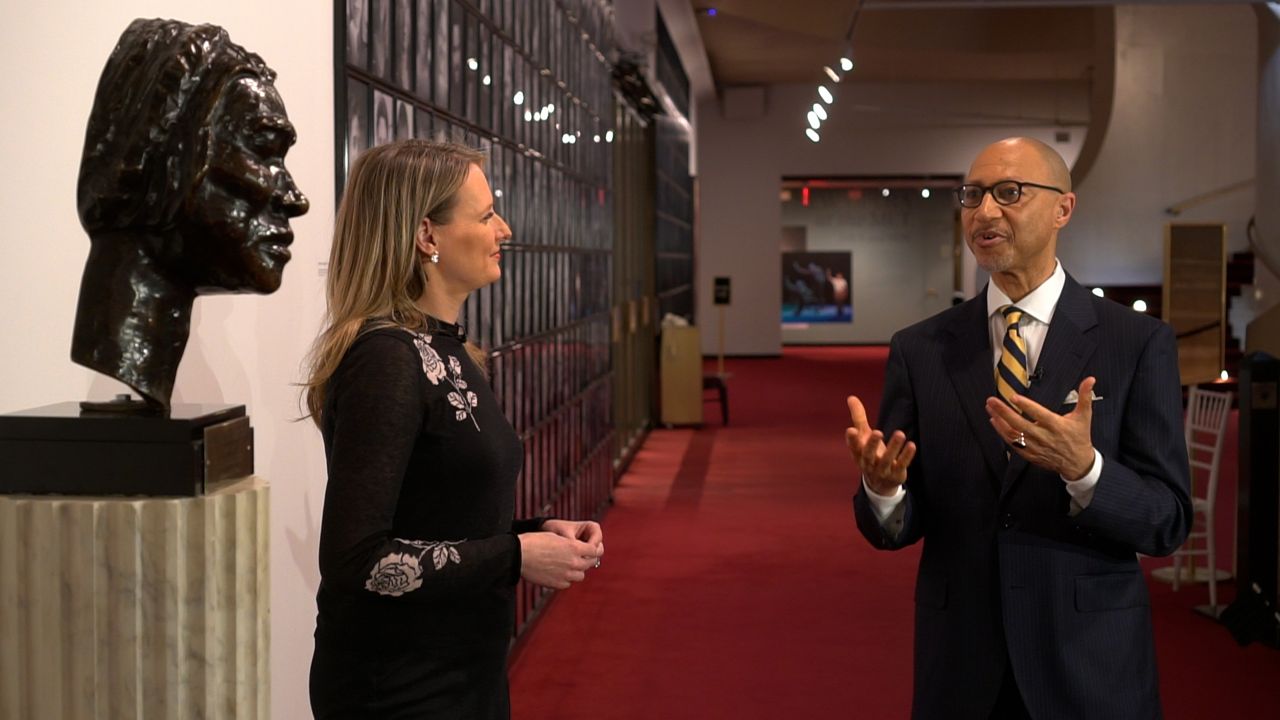As we continue to recognize Women's History Month, we honor trailblazers whose lives continue to inspire women to push the envelope. Spectrum News' Bree Driscoll has more on at the singer who lifted barriers with her voice.
A history-making voice still floats through the house of the Metropolitan Opera.
On January 7th, 1955 the curtain rose on Marian Anderson. At nearly 60 years old she was the first Black singer to have a lead role at the Metropolitan Opera. Before Anderson, the company had only placed its spotlight on white performers.
"This moment in history at the Met changed the face of opera in America," said Director of Archives at the Metropolitan Opera Maurice Wheeler.
Before she even sang a note the crowd erupted into applause. Conductor Dimitri Mitropoulos had to stop the orchestra and wait until the noise subsided.
Wheeler described, "It's hard to imagine singing after that, but she had to compose herself."
Anderson's performance of Ulrica in Giuseppe Verdi's "Un Ballo in Maschera" had ramifications far wider than The Metropolitan Opera’s massive stage.
"It also changed a musical genre internationally because the work that African Americans have done since then has changed the face of opera," explained Wheeler.

Where Anderson broke barriers Grammy Award winning Mezzo Soprano J'Nai Bridges is performing. Honoring the woman who helped make her dreams come true.
"When I first discovered opera and classical voice, she was one of the first voices that I had the pleasure of, of experiencing," said Bridges.
But it wasn't just her voice that inspired Bridges.
"When I go through difficult moments, I think of her and she inspires me," she said. "To keep going and not only keep going, but to continue with Grace.
Grace and persistence defined Anderson's life and career long before she took the stage at the Met.
Born on February 27th, 1897, in Philadelphia, Anderson was the eldest of three girls. Her love for music was discovered at a young age at her family's church.
"I was given a piece of music and told to take it home and look it over," said Anderson during an interview with Howard Taubman in 1955. She went on to say, "It was called 'Dear to the Heart of the Sheppard,' Oh that's so long ago," further describing, "I only remember after that my father saying, 'I'm not going to have them singing my child to death.' It was remarkable, my first public appearance.”
She harnessed the power of using her voice not just for bringing to life the notes on a page but to change the minds of those who doubted her.
But touring during the Jim Crow Era put many hurdles in her way being turned away from hotels, restaurants, and stages because of her race.
In 1939 the Daughters of the American Revolution denied Anderson permission to perform at its Constitution Hall due to a white performers-only policy. The incident highlighting the issue of segregation and setting off headlines across the country.
President Franklin Roosevelt was soon convinced; Anderson was worthy of a much larger stage, in front of the Lincoln Memorial before an audience of 75,000 people.
Anderson described the performance, "As far as the eye could go directly in front of you there were people. On either side all kinds of people and everyone there."
She went on to say, "My heart was thumping I could hardly hear. They were there because a principal was involved and they wanted to show on what side they were standing."
"It actually moved the needle, a little bit on race relations in the country," said Wheeler.
Anderson's voice is renowned for its strength and velvet tone but also a voice that helped to change the tempo of our nation.
"No matter your your positions or your prejudices in life, you heard her voice, and it was completely melted away," said Bridges. And for her Anderson's legacy is held close as she moves forward on her own path.
"Having Marian Anderson in my, you know, kind of sphere tells me that I'm not alone," she said.



